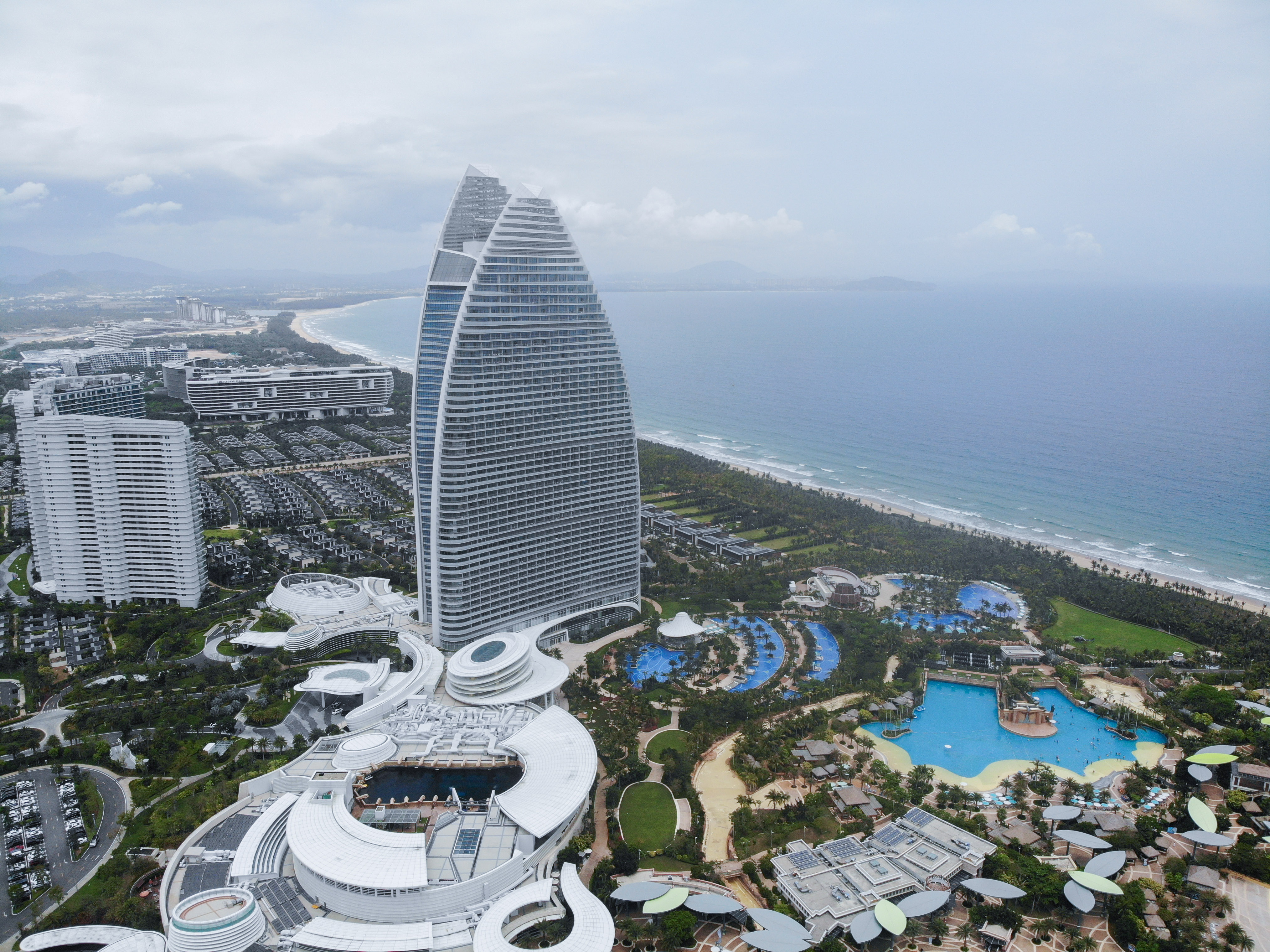Beijing (People’s Daily) - Foreign investors continued to double down in China in 2021, which showed their confidence in the advantage and potential of the Chinese market, experts told the People’s Daily.

Aerial photo taken on April 4, 2020 shows the Atlantis resort in Sanya, south China's Hainan Province. (Photo: Xinhua)
China’s foreign direct investment (FDI) inflows hit a record high in 2021, the Ministry of Commerce announced Thursday. The actual use of FDI secured a double-digit growth of 14.9 percent year-on-year, surpassing 1.1 trillion yuan ($173.48 billion).
Foreign investment attracted by China’s high-tech industries surged 17.1 percent year-on-year, with a growth by 10.7 percent in high-tech manufacturing and a growth by 19.2 percent in the high-tech services sector, the ministry data showed.
China reported stellar performance of attracting foreign investment, said Liu Qing, an economics professor and deputy dean of National Academy of Development and Strategy of Renmin University of China.
The FDI growth and an optimized structure of foreign investment confirmed the appeal of the Chinese market, the expert said.
China’s determination and confidence to push for opening-up remains unwavering amid the pandemic, said Yang Guangpu, an associate research fellow on macroeconomics at the Development Research Center of the State Council.
Global FDI plunged by 42 percent in 2020, while China bucked the trend and overtook the US as the world’s largest FDI recipient.
Experts listed government policies, market size, industrial system and economic outlook as key factors making China a magnet for global investment.
China’s continuous efforts in expanding opening-up and optimizing its business environment help to mitigate uncertainties for foreign investment, Liu said.
Despite anti-globalization headwinds, China’s strong push for the implementation of the Regional Comprehensive Economic Partnership (RCEP) demonstrates the country’s opening-up commitment, said Liu. The regional trade pact came into force on the first day of 2022.
On the same day, a shortened national negative list and a shortened pilot free trade zone (FTZ) negative list also took effect. According to the new lists, foreign ownership caps on passenger car manufacturing companies were removed. All manufacturing sectors are open to global investors in the pilot FTZs.
Foreign enterprises have cast votes of confidence in China’s advantage in its market size and potential for growths, especially in the high-tech industries and services sector, said Yang.
Investment is largely based on expectations, said Liu, adding that considering China’s economic vitality as a major country, foreign investors eye future development opportunities here.
A KPMG report published in December 2021 expected China’s FDI to remain robust this year, particularly in the wealth management, new energy and high technology sectors.
The ministry on Thursday pledged to push for expanding high-level opening-up, promote the roles of free trade ports and pilot zones, and continue improving business environment for global investment. It also vowed to enhance services for foreign companies and projects.
As uncertainties still stalk the global economy, Yang said it is vital to keep China’s macro economy stable, consolidate foreign investors’ confidence in China, and stabilize foreign investment growths.
(Liang Yiming contributed to research.)


